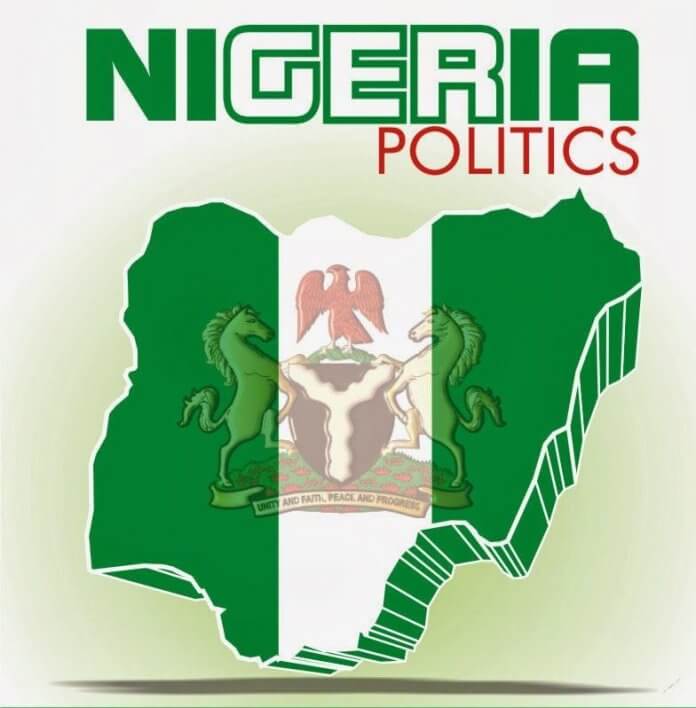Nigeria, Africa’s most populous nation and largest democracy, has long been regarded as a multi-party state where political competition thrives, at least in theory. However, recent political developments suggest a gradual but steady shift toward a de facto one-party system, where the ruling All Progressives Congress (APC) consolidates power while opposition parties weaken.
This trend raises concerns about democratic backsliding, reduced accountability, and the erosion of political pluralism.
While Nigeria still holds regular elections, the dominance of the APC, coupled with the fragmentation and ineffectiveness of opposition parties, paints a worrying picture.
This article examines the factors driving Nigeria toward a one-party system, the implications for democracy, and what can be done to preserve competitive politics.
The Decline of Opposition Parties
1. The Crisis in the PDP
The Peoples Democratic Party (PDP), Nigeria’s main opposition party, has been in decline since losing the presidency in 2015. Internal divisions, leadership crises, and defections to the APC have weakened its influence.
The party’s inability to present a united front in elections has allowed the APC to win even in traditionally PDP strongholds.
2. The Failure of Smaller Parties
Smaller parties like the Labour Party (LP) and the New Nigeria Peoples Party (NNPP) have gained some traction but lack the nationwide structures to challenge the APC.
The 2023 elections showed that while third parties can disrupt the political landscape (as seen with Peter Obi’s surprising performance), they are not yet strong enough to displace the two major parties.
3. Mass Defections to the Ruling Party
A troubling trend in Nigerian politics is the mass defection of opposition politicians to the APC.
Many politicians switch allegiance for personal gain, access to power, or fear of persecution.
This “bandwagon effect” strengthens the APC while leaving opposition parties hollowed out. The Role of State Institutions in Entrenching APC’s Dominance
1. Electoral Manipulation and Judicial Bias
Election irregularities, voter suppression, and questionable judicial rulings have raised concerns about the fairness of Nigeria’s electoral process.
Opposition parties often allege that the Independent National Electoral Commission (INEC) and courts favor the ruling party, making it difficult to challenge election outcomes.
2. Weaponization of Anti-Corruption Agencies
Anti-corruption agencies like the Economic and Financial Crimes Commission (EFCC) and the Independent Corrupt Practices Commission (ICPC) have been accused of targeting opposition figures while turning a blind eye to corrupt APC members. This selective prosecution discourages dissent and strengthens the ruling party’s grip.
3. Control of State Resources
The APC’s control of federal resources allows it to influence state and local politics. Government appointments, contracts, and social welfare programs are often used to reward loyalty, making it difficult for opposition parties to compete on a level playing field.
The Consequences of a One-Party System
1. Erosion of Democracy
A one-party system undermines democratic principles by limiting political choice. Without strong opposition, the ruling party faces little accountability, leading to unchecked power and potential authoritarianism.
2. Increased Corruption and Poor Governance
Competitive politics keeps leaders in check. In a one-party state, the lack of opposition reduces pressure for transparency, leading to greater corruption and inefficiency. Nigeria’s struggles with governance could worsen if power becomes too centralized.
3. Political Apathy and Voter Disillusionment
When elections appear predetermined, citizens lose faith in democracy. Low voter turnout and public disengagement could follow, further entrenching the ruling party’s dominance.
4. Threat to National Unity
Nigeria’s diversity requires inclusive governance.
A one-party system dominated by one region or ethnic group could deepen divisions and fuel separatist agitations.
Can Nigeria Reverse This Trend?
To prevent Nigeria from sliding into a one-party system, several steps must be taken:
1. Strengthening Opposition Parties
Opposition parties must rebuild their structures, resolve internal conflicts, and present credible alternatives to voters. Mergers or alliances could help consolidate opposition forces.
2. Electoral Reforms
INEC must ensure free and fair elections. Electronic voting, transparency in result collation, and stricter penalties for electoral fraud could restore confidence in the system.
3. Judicial Independence Courts must remain impartial in election disputes. Politically motivated judgments undermine democracy and discourage opposition participation.
4. Civil Society and Media Vigilance
Civil society organizations and the media must hold the government accountable and advocate for democratic norms. Public awareness campaigns can help citizens resist authoritarian tendencies.
5. International Pressure
The international community should monitor Nigeria’s democracy and condemn any moves toward one-party rule. Diplomatic and economic pressure could deter anti-democratic actions.
In conclusion , Nigeria is not yet a one-party state, but the signs of democratic erosion are evident.
The APC’s growing dominance, coupled with the weakening of opposition parties, poses a serious threat to political pluralism.
If unchecked, this trend could lead to authoritarianism, poor governance, and national instability. To preserve Nigeria’s democracy, stakeholders, including opposition parties, civil society, the judiciary, and the electorate , must act decisively.
The future of Africa’s largest democracy depends on maintaining a system where power is contested, not monopolized.
What are your thoughts?


1 Comment
Add a Comment